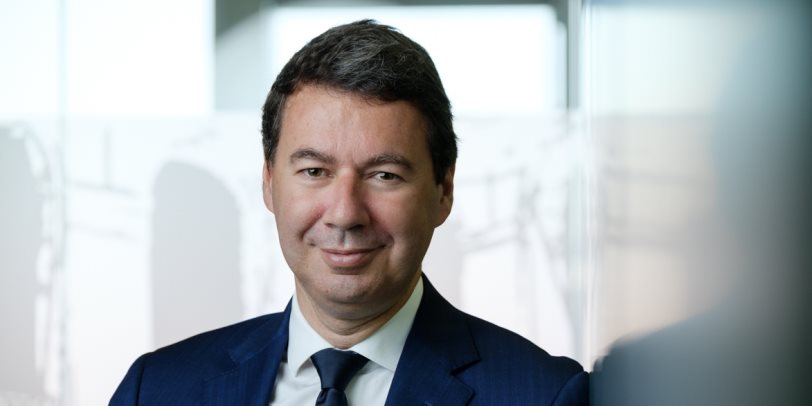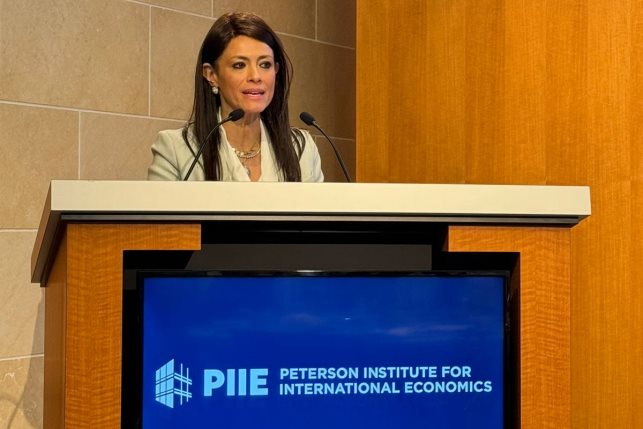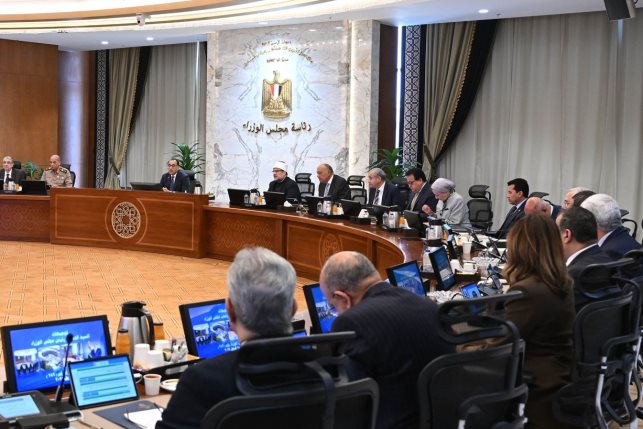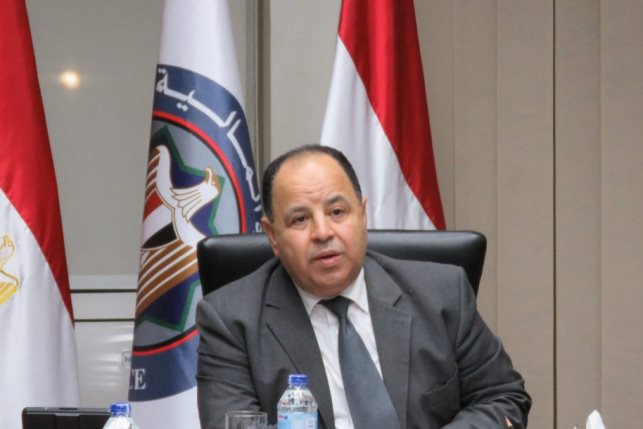Investing in Egypt, Sustainability and Infrastructure | Sitting Down with Egis CEO Laurent Germain
Business Today sat down with Germain during his latest visit to Egypt to discuss Egis’ growing activity in the country and the Middle East as post-pandemic recovery strategies around the globe zone in on revitalization of infrastructure as a priority

“Infrastructure has always been key to foster development,” says Laurent Germain, CEO of international infrastructure group Egis.
In the past few years, the pandemic exposed the need to rebuild and strengthen infrastructure all around the world, with several governments incorporating infrastructure spending as part of economic stimulus in order to develop economies that are more resilient.
“Why? Because when you construct infrastructure, you build additional activities – commercial activities, financial activities – so it has more than an effect of just building infrastructure. It builds a whole ecosystem, with a lot of positive impact on the economy,” explained Germain.
Business Today sat down with Germain during his latest visit to Egypt to discuss Egis’ growing activity in the country and the Middle East as post-pandemic recovery strategies around the globe zone in on revitalization of infrastructure as a priority.
When asked about Egypt’s progress in infrastructure development, Germain told us that Egypt is definitely moving in the right direction.
Highlighting infrastructure is at the heart of Egypt’s Vision 2030, the French CEO praised President Abdel Fattah Al-Sisi’s strategy as leveraging and supporting one of Egypt’s biggest assets, its population.
“I think that infrastructure is a key element for a company to invest in a country. [Egypt’s population] is now at 105 million, but it will soon be 140 million, and building infrastructure will be key to hav[ing] the ability to house these people; for them to be mobile in the country and to attract foreign investors” he specified.
Egis Overview
The French leader in infrastructure, Egis’ international activities account for 65% of its global revenues, with the Middle East representing 13% of their global revenues with projects in Saudi Arabia, Qatar, UAE, Kuwait, Jordan, Bahrain, Oman and Egypt.
“Egis will be a 1.4 billion Euro company in 2022… This year we have experienced 10% organic growth. The company is very dynamic; we do 75% engineering, 25% activities in operations, maintenance, and concessions in infrastructure,” stated Germain, who affirmed that they had been present in Egypt for a significant amount of time.
Egis in Egypt
Egis is widely known for its project and construction management work, particularly in the railway sector which includes Cairo Metro’s lines 2, 3 and 6, as well as the Alexandria tramway network’s Raml Line.
“In 2020, Egypt was one of the only countries without a recession, and it is forecasted that it will have 5% growth on average per year in the next few years, and so, now, we want to [help] speed up that growth. This is why Sameh Atalla [Managing Director - Egis Egypt] has been recruited, to define a new ambitious strategy, which is to lead us to a $10 million in turnover in Egypt. As well as opening new areas of business, especially in the water [and] aviation sectors, so that we have a whole portfolio of activities that reflects the Egis scale globally.”
During his latest visit to Egypt, Germain met with several ministries and companies in Egypt, including the Minister of Aviation, representatives from the ministries of Housing, Transportation, the National Authority for Tunnels, ENR, and several contractors.
According to the CEO, his visit mainly focused on expanding the company’s awareness in Egypt.
“Egis isn’t as known as other engineering firms in the Egyptian market, and I needed for them to understand the broad activities we are doing all over the world. That we are one of the main players, and to deliver the message that we are here for the long term, and we will continue to invest, especially in recruiting a lot of Egyptian engineers to have a solid base to be able to produce the studies for all this infrastructure in Egypt…”
“This was one of the main objectives of my visit. To create partnerships. So I met with clients in the public and private sectors in addition to local potential partners to bid on big projects. We’ve met with multiple contractors, so that we can create and build partnerships in the country.”
Investing In Infrastructure
“I [believe] that infrastructure is a key element for a company to invest in a country. I think Egypt is on the right path and the proof of that is that Egypt is the country that will benefit the most from financing by the French government through its agencies such as AFD [Agence Française de Développement] and other governmental bodies,” Germain explained when asked about Egypt’s progress so far in regards of developing its infrastructure.
“In 2022, Egypt will become the country that we [the French] will conduct the most development programs with in the world, this gives you an idea of the focus that the French government, but also the French companies, have on Egypt. Not only in the defense area, but also in the water area, in the infrastructure area, [as well as] financial and tourism sectors of course. I think this is only the beginning of the reinforcement of the economic ties between France and Egypt.”
“Egis will also want to take this opportunity and reinforce itself in the Egyptian market in the same context,” Germain said, emphasizing the commitment Egis has to developing projects in the country.
As a global company dedicated to sustainable development, Egis has gained a reputation for providing and integrating innovative and sustainable solutions in its designs, winning several international awards and global acclaim.
When asked how has Egis brought this mentality to its Egyptian projects, Germain replied with “This is a very interesting question, Egypt will have to continue to build a lot of infrastructure, and while Egypt is very committed to the fight against climate change, there is a paradox. If you implement more infrastructure you will have more gas emissions, and at the same time you need to reduce them.”
“Companies like Egis are the solution, we have the engineers who have the ability to build infrastructure which will lead to fewer gas emissions through what we call eco-conception. [Eco-conception] is incorporating environmental considerations starting from material selection in the design stage to the method of construction and finally operations.”
“This is the role of a company like Egis, to reconcile both the logistics of development and, at the same time, for this infrastructure to be sustainable and produce fewer gas emissions than before.”
During our sit-down, Germain expressed his thoughts on the challenges companies specialized in infrastructure development and construction in Egypt and the region are facing today. The CEO stated that solving the paradox is one of the region’s main challenges, as countries need to continue developing infrastructure but also move towards reducing its carbon footprint.
“[It is important] in the Middle East to continue to build the necessary infrastructure to foster development, while at the same time provide solutions to have greener cities [that are] more livable, more enjoyable, and more sustainable. This is the role that I [have] signed the company in the Middle East for.”
What should we expect from Egis in 2022?
A lot of expansion and acquisitions, the CEO stressed, saying, “what you can expect is more involvement and investment in the region, firstly in acquisitions. We will announce, hopefully in the next few weeks… the closing of an acquisition of a $50 million company in the Middle East.”
Egis is also looking into investing more in operations, maintenance, and concessions, as well as investments in cultivating the local workforce.
In regards to expanding their portfolio, Germain hopes that regional governments will continue to be more open to private sector inclusion. “Hopefully the countries will understand the added-value of having private companies operating their roads, highways, and airports and we are expecting that more bids will be launched in operations and maintenance,” he explained.
“We already have contracts in operations and maintenance for 50 highways and 17 Airports around the world and we are ready to take on more, especially in the Middle East.”
“[Additionally, what] you can expect more from us is the training investment that we want to do. We absolutely want to reinforce the localization of the workforce… I really want us to take part in the increase of the technical and engineering competence of the engineers from these countries through the academies that we have so that, I would say, we are more and more local in the way that we deal with the market.” Germain added that Egis currently has several worldwide programs that their Egyptian engineers can benefit from.
When asked, if he had a free pass, what his dream project in Egypt would be, Germain expressed his hope to expand his company’s portfolio in the transportation sector.
“We have been very known in Egypt for the metro projects, working on line 1 and 2 and 3 and 6 of the Cairo Metro. And I think the next step or the project I would dream of is [to do] high-speed train projects, because we have been doing high speed trains, and studies for high-speed trains all over the world, especially in the domestic market of France. There are a lot of high-speed line projects in Egypt, so of course there is a lot of competition and I definitely plan to get involved in the high speed line projects of the country.”




